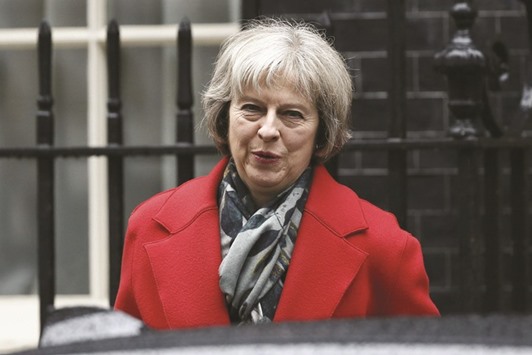Theresa May is facing growing pressure, including from high-profile Conservatives, to warn Donald Trump that the government considers his comments about torture to be unacceptable.
MPs and peers have lined up to urge the prime minister to use her first meeting with the US president to take a stand, amid claims that any return to controversial torture techniques would seriously damage intelligence co-operation.
Angus Robertson, the SNP’s Westminster leader and a member of parliament’s intelligence and security committee, suggested it was not adequate for May to shrug off concerns and simply pledge to rekindle the special relationship during a two-day charm offensive.
“How can the UK claim the relationship is special when it potentially involves torture,” he told the Guardian. “May must raise this with President Trump and explain the extremely damaging consequences that this policy would have on intelligence co-operation between allies.”
He argued that it would call into question the ways intelligence agencies work together, with a mutual understanding that information is never obtained via such techniques.
Responding to Trump’s claim that tactics such as waterboarding work and might be considered legal, Robertson added: “If you had anyone who was in a situation where for days or weeks they experienced drowning they will tell you anything.”
May is also facing pressure from within her own party. In response to the news that the prime minister would tell Trump that the US and UK could “lead, together, again” on a global stage, Tory MP Sarah Wollaston tweeted: “You cannot lead on a global stage by advocating torture, disgusting racial stereotyping and turning back the clock on women’s rights worldwide.”
And Andrew Tyrie, the MP who chairs the Treasury select committee, asked May to make clear to her American counterpart that “in no circumstances will she permit Britain to be dragged into facilitating that torture, as we were after September 11”.
He added that any US return to rendition and torture would “be not just illegal and immoral but counterproductive” and make gathering intelligence more difficult.
May assured Tyrie on Wednesday that Britain has a clear position on the issue. “We do not sanction torture, we do not get involved in that, and that will continue to be our position,” she said.
The comments have been reiterated by the Brexit Secretary, David Davis, and the Foreign Secretary, Boris Johnson, but there has been no suggestion that the prime minister will raise the issue in a meeting with Trump.
Meanwhile, a former key adviser to David Cameron has told the Guardian that the previous prime minister would have been minded to raise the issue in a meeting with an American counterpart. “It is really difficult and we would have been wringing our hands about. There is no upside to the UK falling out with the US and David would have been pragmatic,” they admitted. “But he always believed that a good friend was an honest friend, and Britain has not changed its position on torture.”

Theresa May
